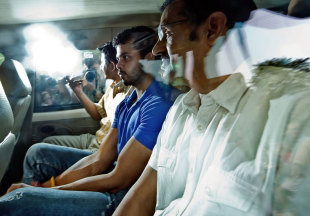
Siddharth Trivedi and Harmeet Singh have also been found guilty for failing to report "an approach by bookmakers" and "the knowledge of another player being approached" to the BCCI anti-corruption unit. The report has suggested 1-5 years bans for the two.
Sawani had prepared an interim inquiry report based on evidence submitted by the Delhi Police in early June. The final report adopts a tough tone and says that none of the players were naive to the propositions of manipulation.
"There is no specific mitigating factor that would require any mercy while sanctioning the aforesaid guilty players," Sawani has said in the report. "Sreesanth has played a number of international games and was part of the Indian national team which won the inaugural T20 World Cup, 2007 and ICC Cricket World Cup in 2011. He has received the ICC ACSU education programme on many occasions. In any case all the three players of Rajasthan Royals who are now being accused and found guilty by the under-signed received the ICC Education Programme just prior to the beginning of the IPL-6 season i.e. on April 5, 2013. The programme was delivered to the entire Rajasthan Royals team by Mr Arrie De Bear, regional security manager of the ICC ACSU."
"Obviously, the anti-corruption education given to the three players had no impact on the conduct. Therefore, the three players deserve no leniency whatsoever."
Five of the six players have been summoned by the board to present their case in a disciplinary committee meeting that takes place today in New Delhi. Chandila, who was released on bail on September 9, has not been summoned since Sawani hasn't yet had the opportunity to question him.
Since the disciplinary committee is a statutory body, it is not binding on it to forward their recommendations to the board's AGM later this month. If the committee feels some of the sanctions can be announced in New Delhi, it is free to do so.




Comments
Add new comment